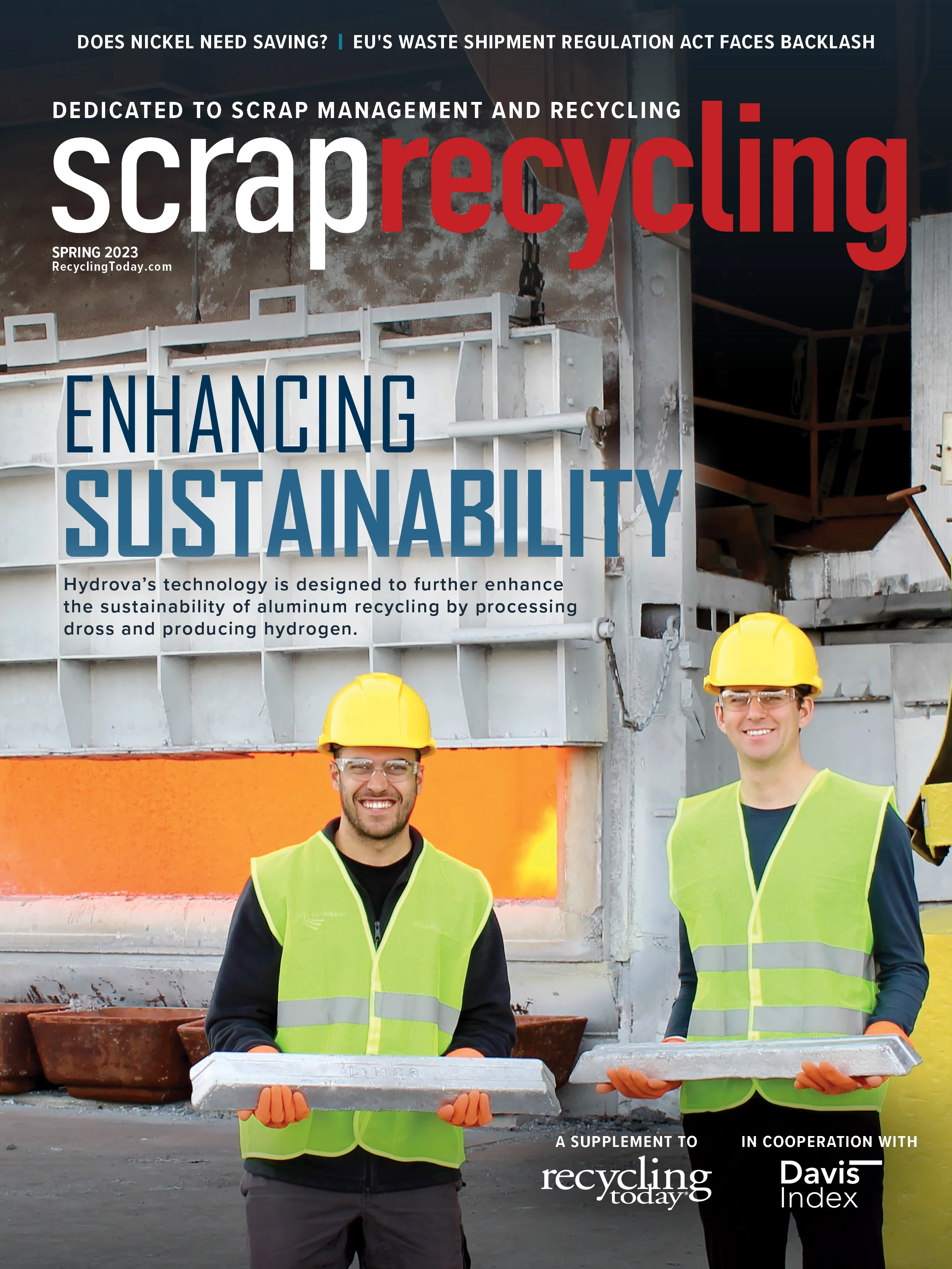
Secondary aluminum producers demand high-purity shredded aluminum scrap, which requires extraction from a highly mixed stream of shredded materials. STEINERT has both the necessary sorting technology and decades of proven installation experience to help recyclers produce a 99.8% pure aluminum product.
X-raying for a clean bill of health
X-ray transmission (XRT) technology is a critical piece of the sorting puzzle being perfected by STEINERT. XRT helps recyclers meet the aluminum production industry’s high purity standards.
As deployed in devices such as the STEINERT XSS T EVO 5.0, XRT technology is used for dry density sorting of bulk materials, including shredded aluminum still mixed with metals such as magnesium. The XRT procedure detects material-dependent differences in the absorption of X-rays and then instantly classifies and sorts it by density.
The EVO 5.0 generation deploys XRT technology equipped with STEINERT’s Multilayer Data Evaluation (MDE) function. The MDE feature helps replace the use of manual sorters in particularly challenging sorting tasks, such as magnesium detection. As well, it can solve the issue of detecting and distinguishing composite objects in the mixed metals stream.
Dependable STEINERT XRT technology precedes EVO 5.0 and has long helped American recyclers meet quality specifications. In Indiana, Trinity Metals is deploying XRT and several other STEINERT sorting technologies to convert mixed shredded scrap into marketable aluminum, red metals, magnesium and precious metals.
“We’ve worked closely with our consumers to understand the products they need in their foundries,” says Trinity CEO Wade Conner. STEINERT’S sorting equipment, Conner says, “is state-of-the-art, and with STEINERT technical assistance, the equipment does more than what we anticipated it would.”
The good from the bad
Recycled-content aluminum furnace operators can have very different requirements or specifications, meaning STEINERT equipment places a premium on versatility and multitasking.
The identification of solid magnesium is one key to the quality of secondary aluminum. With EVO 5.0 using the breakthrough MDE feature, STEINERT can now meet the most stringent criteria for particularly challenging sorting tasks, including detecting magnesium.
By separating free magnesium, the recycled aluminum produced can be used to meet tight aluminum alloy specifications with little to no magnesium reducing flux in the furnace.
Once installed, STEINERT equipment will stay on the job. Its AXM (Automatic X-ray Monitoring) feature offers automated calibration of the X-ray sensors, so plant operators achieve and maintain consistently high detection and sorting quality over the entire life of the X-ray components.
Groundbreaking technology for alloys sorting
In addition to constantly improving XRT technology, STEINERT offers producers of recycled-content aluminum access to innovative laser-induced breakdown spectroscopy (LIBS) sorting devices.
LIBS can analyze, in real time, aluminum and alloyed element content, such as copper, magnesium or silicon, which determines the precise type of aluminum alloy being presented. This process allows various alloys to be classified effectively, creating a furnace-ready product for alloys producers. This recovery of targeted alloys plays a vital role in reducing downcycling.
STEINERT LIBS equipment already is being used in Europe by AMAG Austria Metall AG. The company has become a pioneer in sorting aluminum alloys with its use of a STEINERT LIBS system starting in 2019. AMAG produces high-grade primary, cast and rolled products out of its purified aluminum scrap stream.
Demand for recycled aluminum will only grow. Purifying aluminum scrap in precise and automated ways is both a challenge and an opportunity. Recyclers ready to turn those challenges into opportunities will benefit from reaching out to STEINERT to discover the state of aluminum sorting technology in 2023.

WANT MORE?
Enter your email to receive our newsletters.

Explore the Spring 2023 Scrap Recycling Issue
Check out more from this issue and find your next story to read.
Latest from Recycling Today
- Athens Services terminates contract with San Marino, California
- Partners develop specialty response vehicles for LIB fires
- Sonoco cites OCC shortage for price hike in Europe
- British Steel mill’s future up in the air
- Tomra applies GAINnext AI technology to upgrade wrought aluminum scrap
- Redwood Materials partners with Isuzu Commercial Truck
- The push for more supply
- ReMA PSI Chapter adds 7 members






